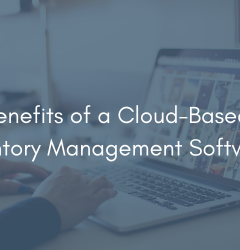Income Tax Deduction and Exemption for Small Business Owners
We all know how complicated income taxes are – especially for small businesses.
While you are looking for improving your products and services for your customers, don’t forget your taxes can bring a lot of difference to your revenue. To save yourself from taxes, rely on,
- Tax deductions – something that deducts the amount of tax you have to pay.
- Tax exemptions – the income and transactions that are free from taxes at the federal state or local-level.
There are mainly two types of exemptions – personal and dependent exemptions. We will discuss it further.
What are income tax deduction and exemption?
Starting from the basics, if you are a taxpayer, i.e., your income is more than Rs. 2,50,000/- p.a., you are eligible to pay taxes by the Income tax department.
However, you can exempt your taxable amounts with the help of income tax deductions and exemptions allowed by IRS. In simple words, tax deduction reduces the amount of the income that is taxable by the government.
When you have to file the ITR to the Income tax department, you can use tis sections to file the ITR properly.
There are various deductible items under listed sections under Income Tax Act that you can use to lower your taxable amounts.
Deductible items –
- Business expenses
- Medical expenses
- Retirement items
- Educational items (like student loan interest)
- Charitable donations
- Other expenses allowed by IT-Act Sections
Small Business Income Tax Deduction and Exemption Items
Every small business owner wants to save their money, and tax deductions do the same for you. There are many retailers who are unaware of these deductions and exemption that can give them a great relief from taxes.
Therefore, moving forward lets quickly discuss what are those easy and popular expenses that can reduce their taxable amount.
So, here is a list of 21 easiest and best small income tax deductions and exemptions that a business owner can use and can go from “Ugh!? Taxes!!” to “Oh Taxes? I saved that!”
Vehicle Expenses
You can use your actual vehicle expenses (gasoline, maintenance, repairs, etc.) as a deduction in your taxable amount. Always keep a record of the usage of your car, truck, or any other, may it be your personal vehicle. When the time for your tax payout nears, you can use those records and can deduct the actual expenses as an income tax deduction and exemption.
Moreover, you can also use the direct rate set by the IRS – Standard Milage Rate, which is 58 cents/mile for the business purpose.
Whether you are running personal errands or delivering your dishes in your van, just count on the milage and calculate the numbers with both of the methods to see which one gives you more numbers to save in your taxes.
If you are running your vehicle for larger miles every year, then you can use the IRS standard mileage rate method as it will give you more amount to save per mile. However, if your delivery or errand vehicle is old and requires a lot of maintenance and care charges, then you might get a larger income tax deduction and exemption in your taxable amount using Actual expenses vs. IRS standard mileage rate.
Either way – you will save a lot by intelligently keeping a record of your usage may it be actual expenses or mileage rate. Just know what method you choose should give you the best tax-saving deductions back in your pocket.
Home Office
Home office refers to a part of your home or your entire home that you use as your working slot. Maybe you park your food truck after work at night or open up your library while day or something where you dedicate a part of your house for your business.
It’s pretty standard for many sole proprietors or self-employed individuals to have a devotes working area at their home only. The important thing here the type of work devoted. If you are working in the kitchen while your children are studying on the table, that would not count on the deductible item. Therefore, you must have a specific space or a room dedicated only to your work or business.
Filing taxes with this deduction will help you save a lot more. Yet we highly recommend you to go through the IRS’ literature on this particular tax deduction. Also prefer to consult a tax professional before filing ITR with this deduction. It is quite complicated though useful for small business owners as this income tax deduction and exemption on their home office can count on their taxable amounts.
Bonus Depreciation
Professional services
Having a small business might be a problem to hire in-house accountants or attorneys. However, its seamless to hire a consultant that will help you grow your overall business outreach. The service fees you would pay for that professional services are deductible.
Yet, you must be clear that the services are reasonable and sound, so when you file ITR, you can deduct those service fees from your taxable amount. To do this, you should have a count on it by checking it with the apt IRS publication or a tax specialist.
It’s a simple way that would help you grow your business while saving on your income. So, you would definitely try it. Wouldn’t you?
Salaries and Wages
If you are a self-employed individual or have your LLC company, then salaries and wages are indeed deductible. Therefore, these exemptions can reduce your taxable amount with the amount of salaries and wages you pay to your hardworking staff.
However, you might not be able to deduct the drawings and income that you take from your business. But still, this deduction isn’t bad.
Moreover, this isn’t limited to only salaries and wages. Bonuses, meals, allowances, lodging, some employer-paid taxes, and other such add-ons are also deductible. You can even also deduct your cost of the software and systems in many situations.
Therefore, a small business owner who meets the requirements can do a big tax-saving by this deduction.
Work Opportunity Tax Credit
Hired any military veterans or kept any long-term unemployed worker under your business? If yes, then that’s great! You are eligible to get the advantage of the Work Opportunity Tax Credit of 40 percent from your first $6000 wages payouts.
Office Supplies and Expenses
Income Tax Deduction and Exemption Sections
Here are some main and important tax deduction sections under Income Tax Act that help small business owners to reduce their income taxes to some extent.
Section 80C
This section can be easily seen in any of the government provided investment schemes. If you are investing in any government schemes, you are allowed an exemption of Rs. 1,50,000 by the income tax department.
Therefore, if your income is more than 2,50,000 and you are making investment in any of the government provided schemes then you can easily avail the benefit of this section. Some examples of investment under this section are:
- Equity Linked Saving Scheme
- Public Provident Fund
- Sukanya Samridhi Yojana
- National Savings Certificate
- Tuition Fees
- 5-year Tax Saving Fixed Deposit
- Senior Citizen Saving Scheme
These are the most common government bonds that motivates investors mostly small business investors to invest while saving on income tax under Section 80C.
Section 80D
Under this section an individual or a HUF can claim up to Rs 25,000 deduction for medical health insurance from the income tax. Moreover, if you are a senior citizen, you can avail a benefit of up to Rs 30,000 deduction in your taxes.
Now if we talk about the investment needed to avail the deduction through this section, you will require a medical health insurance (for any typical or serious disease) of any of your family members – spouse, husband, child, mother, father, or even any of your Undivided Hindu Family member.
Here the Income Tax Department accepts health insurance of only your own family members. Therefore, in this way you can avail tax-deduction benefit up to Rs 75,000.
Section 80DD
Section 80DD of the Income Tax Act allows an individual or a HUF to claim a tax-saving deduction benefit of up to Rs 75,000 if in any way you are incurring expenses for medical treatment, or rehabilitation of a disabled dependant.
A disabled dependant is the one who has at least 40% of a specified disability in his body and is totally dependent on you in any financial way for support and maintenance.
Moreover, deduction can be availed over a dependent of the taxpayer and not the taxpayer himself.
In simple words, if the taxpayer is disabled and is claiming for a deduction in the taxes, he will not be approved as he is a dependent himself. This deduction is only allowed for the helper of a disabled.
Section 80DDB
Section 80DDB of the Income Tax Act provides you a tax-saving income tax deduction and exemption benefit opportunity if you are incurring any medical expenses of your family for any disease or ailment.
You can reduce your taxable amount by the amount paid for the treatment of a specific disease or a sum of Rs 40,000 under this section from the income tax department if any of your family member is suffering a serious disease.
The deduction for the medical treatment under this section is allowed for an individual itself or dependent (Dependant here refer to the spouse, children, parents, brothers, and sisters of the individual’s family) and the Hindu Undivided Family.
Moreover, if the taxpayer is a senior citizen, he/she can claim this deduction benefit for up to Rs 1,00,000. Also, this tax-saving deduction is not available for the persons who are non-resident of India.
Here the list of some main diseases for which deduction is claimable under the section 80DDB:
- Full Blown Acquired Immuno Deficiency Syndrome (AIDS)
- Thalassaemia and Haemophilia
- Chronic renal failure
- Various neurological disease (disability level should not be less than 40%)
- Malignant cancers
Section 80G
Do you love donating to charities? If yes, then this section is made for you. The section 80G of the Income Tax Act allows you to save yourself from taxes by doing some good work.
The deduction in this case is not limited to any specified category of individuals. Here anyone who donates to a notified entity or a relief fund set up by the government can claim the benefit.
If your income is more than Rs 2,50,000 and further you also donate in charities or any educational institutions, old age home, NGO’s, or any other such donating institutions then you can claim a deduction benefit of 50% up to Rs 1,50,000 from gross total income before arriving at taxable income.
However, be cautious in choosing the entity you donate to. This is because the income tax department notifies a list of charitable institutions for the purpose of tax-savings. If you donate to any entity which is not listed by the I-T department, you won’t be able to claim any amount of deduction in your taxes.
Moreover, there are many notified entities specified under this section where you can claim 100% deduction of your donated amount from your taxable amount.
Some entities for which you can claim 100% of your donated amount are:
- The Prime Minister’s National Relief Fund
- National Defence Fund
Some entities where you can claim 50% of your donation are:
- Jawahar Lal Nehru Memorial Fund
- Prime Minister’s Drought Fund
Section 80CCD
Section 80CCD under the Income Tax Act is specially made for NPS – National Pension Scheme. The individual tax payers who contributes to the specific notified national pension schemes by the government are allowed a tax deduction of up to Rs 1,50,000 from the taxable amount.
Moreover, the deduction is allowed for the employed taxpayers as well as the self-employed or the small business owners whose income is more than Rs 2,50,000.
Section 80GG
Section 80GG under the Chapter IV-A of the Income Tax Act, 1969, is a unique provision that allows a tax-saving deduction benefit to those salaried workers or self-employed owners who live in a rented house.
Under this section, a taxpayer can claim up to Rs 60,000 deduction in the taxable amount from the income tax department.
Moreover, to avail this deduction benefit, it is mandatory that the taxpayer is residing in a rented property. The employers who are working for a company and are not getting any HRA are allowed the deduction from their taxable amount under this section. Otherwise, this deduction cannot be claimed.
Section 80E
The Section 80E under the Income Tax Act allows the taxpayer to deduct the amount of interest paid on the education loan (component of the EMI) as a deduction in the taxable amount by the income tax department.
Under this section, the individuals who owe education loan can claim a tax-saving deduction benefit for the exemption the interest paid on that loan. Using this section, the individual can be freed from paying interest on that loan.
Moreover, the taxpayer can avail this benefit only if the education loan is taken for self-use or own children or any other member in the family.
Withal, this loan is available for a maximum period of 8 years or till when the interest is paid off – whichever is earliest.
Section 80EE
The Section 80EE is a good way for Income tax deduction and exemption under the Income Tax Act for the interest paid on the Home Loan.
The individuals whose income is more than Rs 2.5 lacs, have borrowed home loan can claim the deduction from the income tax department to exempt the interest on the loan up to Rs 50,000 every financial year. Further, the borrower can continue to claim the deduction till the loan is fully repaid.
It allows income tax deduction and exemption under Section 80EE only to individuals. Therefore, a company, AOP, HUF, or any other kinds of taxpayers cannot avail the benefit of this section. Moreover, the section does not clarify whether or not the taxpayer should be an Indian resident, i.e., both Resident and Non-Resident can apply under this section and claim an interest exemption benefit.








